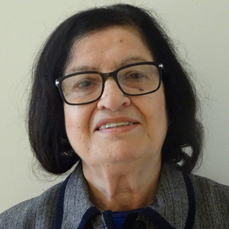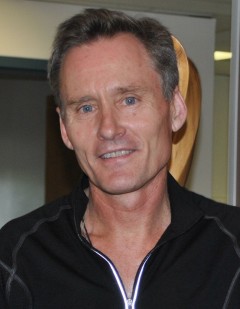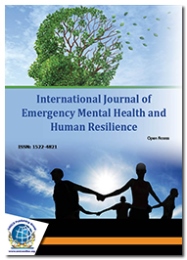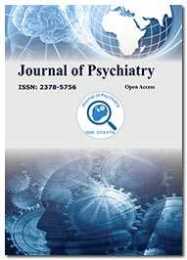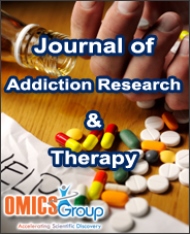Theme: Challenges in Mental Illness & Differential Procedures of Diagnosis and Therapy
Mental Health 2016
Track 1: Emergency Mental Health
It is the psychological condition of someone who is functioning at a satisfactory level of emotional and behavioral adjustment. Greater than 200 categorized forms of mental illness conditions are present. Mental health includes an individual's potential to enjoy life and create a balance between normal life activities and efforts to achieve psychological resilience. It is important at every stage of life, beginning with childhood and adolescence through adulthood. Half of the mental health conditions begin by age 14 and the remaining conditions develop by age 24. Prevention of mental disorder at the young age may significantly decrease the risk that a child will suffer from it in the later life.
Related conferences to Emergency Mental Health
15th WAIMH Conference (World Association for Infant Mental Health), May 29-June 2, 2016, Prague, Czech Republic; XXXIV International Congress of Law and Mental Health, July 12-17, 2016, Vienna, Austria; 8th International Conference on Social Work in Health and Mental Health 2016, June 19 2016, Singapore; World Congress of the World Federation for Mental Health (WFMH2015), October 16-19, 2015, Cairo, Egypt; 2nd International Conference on Loss, Bereavement and Human Resilience in Israel and the World: Facts, Insights and Implications?, 11-14 Jan 2016, Eilat, Israel. Second World Conference on Personality, March 31-April 4, 2016 Buzios, Brazil; International Meeting of the Psychonomic Society, May 5-8, 2016 Granada, Spain; 15th WAIMH Conference (World Association for Infant Mental Health), May 29-June 2, 2016 Prague, Czech Republic; 8th World Congress of Behavioral and Cognitive Therapies 2016 (WCBCT), June 22-25, 2016 Brisbane, Australia; 24th Biennial Meeting of The International Society For The Study Of Behavioral Development, July 10-14, 2016 Vilnius, Lithuania. Psychiatry Conferences Europe November 10-12, 2016 Alicante, Spain. Wisconsin Psychological Association, World Health Organizations, World Psychiatric Association
Track 2: Human Resilience
It is termed as an individual's ability to adapt for stress and adversity. Resilience is one's ability to bounce back from a negative experience. It is recognized in an average individual and it can be learned and virtually developed by any individual. It emerged as a major theoretical and research topic from the studies of children of schizophrenic mothers. Different kinds of approaches to resilience building have been developed, gathering attention mainly on the theory and practice of rational emotive behavior therapy, cognitive behavioral therapy. An emerging field in the study of resilience is the neurobiological basis of resilience to stress.
Related conferences to Human Resilience
2nd International Conference on Loss, Bereavement and Human Resilience in Israel and the World: Facts, Insights and Implications?, 11-14 Jan 2016, Eilat, Israel; 15th WAIMH Conference (World Association for Infant Mental Health), May 29-June 2, 2016, Prague, Czech Republic; XXXIV International Congress of Law and Mental Health, July 12-17, 2016, Vienna, Austria; 8th International Conference on Social Work in Health and Mental Health 2016, June 19 2016, Singapore; World Congress of the World Federation for Mental Health (WFMH2015), October 16-19, 2015, Cairo, Egypt; 2nd International Conference on Loss, Bereavement and Human Resilience in Israel and the World: Facts, Insights and Implications?, 11-14 Jan 2016, Eilat, Israel. Second Conference on Personality, March 31-April 4, 2016 Buzios, Brazil; International Meeting of the Psychonomic Society, May 5-8, 2016 Granada, Spain; 15th WAIMH Conference (World Association for Infant Mental Health), May 29-June 2, 2016 Prague, Czech Republic; 8th World Congress of Behavioral and Cognitive Therapies 2016 (WCBCT), June 22-25, 2016 Brisbane, Australia. Psychiatry Conferences Europe November 10-12, 2016 Alicante, Spain. Mental Health America, National Institute of Mental Health, Ohio - American Psychiatric Nurses Association
Track 3: Mental Health and Wellness
Wellness is defined as a proactive and positive approach to living that increases resiliency to stress by promoting life balance and contentment. It concerns about maintaining an overall quality of life and the pursuit of mental, optimal emotional and physical health. Focusing on health and wellness is particularly important for people with, or at risk for, behavioral health conditions. People with mental or substance use disorders typically die years earlier than the general population. The way you think has a big impact on your mental health. Changes in your thoughts often go along with changes in your mental health. Mental health is determined by our overall patterns of thoughts, emotions, behaviors and body reactions. Having a good mental health is likely to help protect against development of many such problems.
Related conferences to Mental Health and wellness
15th WAIMH Conference (World Association for Infant Mental Health), May 29-June 2, 2016, Prague, Czech Republic; XXXIV International Congress of Law and Mental Health, July 12-17, 2016, Vienna, Austria; 8th International Conference on Social Work in Health and Mental Health 2016, June 19 2016, Singapore; World Congress of the World Federation for Mental Health (WFMH2015), October 16-19, 2015, Cairo, Egypt; 2nd International Conference on Loss, Bereavement and Human Resilience in Israel and the World: Facts, Insights and Implications?, 11-14 Jan 2016, Eilat, Israel. Second World Conference on Personality, March 31-April 4, 2016 Buzios, Brazil; International Meeting of the Psychonomic Society, May 5-8, 2016 Granada, Spain; 15th WAIMH Conference (World Association for Infant Mental Health), May 29-June 2, 2016 Prague, Czech Republic; 8th World Behavioral and Cognitive Therapies 2016 (WCBCT), June 22-25, 2016 Brisbane, Australia; 24th Biennial Meeting of The International Society For The Study Of Behavioral Development, July 10-14, 2016 Vilnius, Lithuania. Psychiatry Conferences Europe November 10-12, 2016 Alicante, Spain. Central Institute of Mental Health Mannheim, Associates For Behavioral Health, Associates for Psychiatric Services
Track 4: Psychopathology
Psychopathology term indicates either the study of mental illness or mental distress or the manifestation of behaviors and experiences which may indicate the mental illness or psychological impairment. Mostly Psychiatrists and clinical psychologists are particularly concerned in this area and may either be involved in clinical treatment of mental illness, or research in the origin, development and manifestations of such states, or often, both. Psychiatrists are interested in descriptive psychopathology in particular, which has the aim of describing the symptoms and syndromes of mental illness. The current talk among doctors and researchers treating mental disorders explores the intersection of genetics and environment in major mental illnesses.
Related conferences to Psychopathology
2016 Taiwan International Conference on Education and Psychology (ICEP 2016), 13-15 January 2016 Taipei, Taiwan; 2016 Spring Global Symposium for Psychology Professionals, 1-2 April 2016 Los Angeles, USA; International Psychological Applications Conference and Trends 2016 (InPACT 2016), 30 April-2 May 2016 Lisbon, Portugal; APCESP 2016 — 2016 Asia-Pacific Conference on Education, Society and Psychology, 05-07 Jan 2016 Soeul, South Korea; 2nd Latin American Congress for the Advancement of Scientific Psychology, October 12-15, 2016 Buenos Aires, Argentina; Second World Conference on Personality, March 31-April 4, 2016 Buzios, Brazil; International Meeting of the Psychonomic Society, May 5-8, 2016 Granada, Spain; 15th WAIMH Conference (World Association for Infant Mental Health), May 29-June 2, 2016 Prague, Czech Republic; 8th World Behavioral and Cognitive Therapies 2016 (WCBCT), June 22-25, 2016 Brisbane, Australia; 24th Biennial Meeting of The International Society For The Study Of Behavioral Development, July 10-14, 2016 Vilnius, Lithuania. Psychiatry Conferences Europe November 10-12, 2016 Alicante, Spain. German association for psychiatry, German Psychological Association, Global Mental Health Research
Track 5: Mental retardation
Mental retardation also known by the terms Intellectual disability (ID) or Intellectual development disorder (IDD) or General learning disability. It is neurodevelopmental disorder caused by impaired functioning. It is caused due to fetal alcohol syndrome, malnutrition, improper brain functioning, brain damage caused by the use of prescription or illegal drugs during pregnancy; genetic disorders and brain injury and disease; such as down syndrome and fragile X syndrome. It is mostly seen in age below 18. Mostly 2–3 percent of the general population is affected by Intellectual disability. 75–90% of the people affected have mild Intellectual disability. Non-syndromic affects about 30–50 percent of cases and about a quarter of cases are caused due to a genetic disorder. People with intellectual disabilities as a group have higher rates of adverse health conditions such as neurological disorders, gastrointestinal disorders, epilepsy and psychiatric or behavioral problems compared to people without disabilities.
Related conferences to Mental Retardation
15th WAIMH Conference (World Association for Infant Mental Health), May 29-June 2, 2016, Prague, Czech Republic; XXXIV International Congress of Law and Mental Health, July 12-17, 2016, Vienna, Austria; 8th International Conference on Social Work in Health and Mental Health 2016, June 19 2016, Singapore; World Congress of the World Federation for Mental Health (WFMH2015), October 16-19, 2015, Cairo, Egypt; 2nd International Conference on Loss, Bereavement and Human Resilience in Israel and the World: Facts, Insights and Implications?, 11-14 Jan 2016, Eilat, Israel. Second World Conference on Personality, March 31-April 4, 2016 Buzios, Brazil; International Meeting of the Psychonomic Society, May 5-8, 2016 Granada, Spain; 15th WAIMH Conference (World Association for Infant Mental Health), May 29-June 2, 2016 Prague, Czech Republic; 8th World Behavioral and Cognitive Therapies 2016 (WCBCT), June 22-25, 2016 Brisbane, Australia; 24th Biennial Meeting of The International Society For The Study Of Behavioral Development, July 10-14, 2016 Vilnius, Lithuania. Psychiatry Conferences Europe November 10-12, 2016 Alicante, Spain. Child Psychiatry Associates, Cognitive Behavioral Therapy Society of Southern California, Comprehensive Psychiatric Associates
Track 6: Mental disorders
There are many causes to get mental disorders. Individual’s genes and family history may play a crucial role and your life experiences such as stress or history of abuse may also matter. Biological factors can also be a part of the cause. Traumatic brain injury can lead to a mental disorder. A mother's exposure to viruses or toxic chemicals while pregnant may play a part in getting mental disorder. Other factors may increase the chance of risk such as use of illegal drugs or having a serious medical condition like cancer. Medications and counseling can help to cure many mental disorders. Different kinds of mental disorders like Anxiety disorders, Depression, Mood disorders, Personality disorders, Psychotic disorders, Obsessive-compulsive disorder, Post-traumatic stress disorder, substance abuse.
Related conferences to Mental Disorders
International Marce Society Biennial Scientific Conference 2016, ‘Frontiers in Perinatal Mental Health – looking to the future’, 26-28 September 2016 Melbourne, Australia; 12th International conference on Psychiatry ‘Psychiatry in General Medicine, 7-9 April 2016 Jeddah, Saudi Arabia; 2016 Spring Global Symposium for Psychology Professionals, 1-2 April 2016 Los Angeles, United States of America; 8th International Conference on Social Work in Health and Mental Health 2016, June 19 2016 Singapore; 8th European Conference of Positive Psychology ECPP8 July, 2016 Angers, France. Second World Conference on Personality, March 31-April 4, 2016 Buzios, Brazil; International Meeting of the Psychonomic Society, May 5-8, 2016 Granada, Spain; 15th WAIMH Conference (World Association for Infant Mental Health), May 29-June 2, 2016 Prague, Czech Republic; 8th World Behavioral and Cognitive Therapies 2016 (WCBCT), June 22-25, 2016 Brisbane, Australia; 24th Biennial Meeting of The International Society For The Study Of Behavioral Development, July 10-14, 2016 Vilnius, Lithuania. Psychiatry Conferences Europe November 10-12, 2016 Alicante, Spain. World Health organization, World Psychiatric Association, World Psychiatry Associations
Track 7: Psychiatric Emergencies
Psychosis is the term used to describe the state of mind in which the individual experiences a distortion or loss of contact with reality. It is caused due to a genetic disorder. This mental state is characterized by the presence of hallucinations, delusions and/or thought disorder. It affects 3 out of every 100 people. People experiencing psychosis may exhibit some kind of personality changes and thought disorder. Psychosis can also be stimulated by traumatic experiences, stress or physical conditions such as Parkinson's disease, brain tumor or as a result of drug misuse, alcohol misuse. It is most likely to be diagnosed in young adults and also in any sort of persons. Different types of psychosis includes drug or alcohol related psychosis, organic psychosis, brief reactive psychosis and psychotic disorders. It is diagnosed through a psychiatric evaluation. Treatment consists of Rapid Tranquilization, Drugs and medication, therapies. The concept of the session consists of attempts made to recovery, etiology and examination.
Related conferences to Psychiatric Emergencies
15th WAIMH Conference (World Association for Infant Mental Health), May 29-June 2, 2016, Prague, Czech Republic; XXXIV International Congress of Law and Mental Health, July 12-17, 2016, Vienna, Austria; 8th International Conference on Social Work in Health and Mental Health 2016, June 19 2016, Singapore; World Congress of the World Federation for Mental Health (WFMH2015), October 16-19, 2015, Cairo, Egypt; 2nd International Conference on Loss, Bereavement and Human Resilience in Israel and the World: Facts, Insights and Implications?, 11-14 Jan 2016, Eilat, Israel. Second World Conference on Personality, March 31-April 4, 2016 Buzios, Brazil; International Meeting of the Psychonomic Society, May 5-8, 2016 Granada, Spain; 15th WAIMH Conference (World Association for Infant Mental Health), May 29-June 2, 2016 Prague, Czech Republic; 8th World Behavioral and Cognitive Therapies 2016 (WCBCT), June 22-25, 2016 Brisbane, Australia; 24th Biennial Meeting of The International Society For The Study Of Behavioral Development, July 10-14, 2016 Vilnius, Lithuania. Psychiatry Conferences Europe November 10-12, 2016 Alicante, Spain. German association for psychiatry, German Psychological Association, Global Mental Health Research
Track 8: Diagnosis and Therapy
Innovations in the range of evidence based medications, therapy and psycho-social services such as psychiatric rehabilitation, employment, housing and peer supports have made wellness and recovery a reality for people living with mental health conditions. Research showed that in the lifetime half of the cases with mental illness begin by age 14. Treatment options for mental health conditions will vary from person to person. Even people with the same diagnosis will have different kinds of experiences, needs, goals and objectives for treatment. For example, therapy can take many forms, from learning relaxation skills to intensively reworking your thinking patterns. Psychiatrists and psychologists use specially designed assessment tools to evaluate a person for a mental illness. Millions of Americans are surviving with many types of mental health problems such as social anxiety, obsessive compulsive disorder, drug addiction and personality disorders. Treatment recourse includes medication and psychotherapy. A psychologist is trained in a way so as to evaluate and diagnose mental illnesses but usually treats them by counseling or behavioral therapy. Different therapies like Psychotherapy, Activity therapy, Alternative therapy and Expressive therapy are discussed in the session.
Related conferences to Diagnosis and Therapy
3rd International Conference on Counseling, Psychotherapy and Wellness and the 4th Congress of the Society for Integrating Traditional Healing into Counseling Psychology, Psychotherapy and Psychiatry, January 5-7, 2016 Bangalore, India; International Psychological Applications Conference and Trends 2016 (InPACT 2016), 30 April-2 May 2016 Lisbon, Portugal; BeHealth Conference -International Behavioral Health Conference 2016, 16-17 January 2016 Hong Kong, China; 8th European Conference of Positive Psychology ECPP8 July, 2016 Angers, France; 24th Biennial Meeting of The International Society For The Study Of Behavioral Development, July 10-14, 2016 Vilnius, Lithuania. Second World Conference on Personality, March 31-April 4, 2016 Buzios, Brazil; International Meeting of the Psychonomic Society, May 5-8, 2016 Granada, Spain; 15th WAIMH Conference (World Association for Infant Mental Health), May 29-June 2, 2016 Prague, Czech Republic; 8th World congress on Behavioral and Cognitive Therapies 2016 (WCBCT), June 22-25, 2016 Brisbane, Australia; 24th Biennial Meeting of The International Society For The Study Of Behavioral Development, July 10-14, 2016 Vilnius, Lithuania. Psychiatry Conferences Europe November 10-12, 2016 Alicante, Spain. European Association of Behavioural and Cognitive Therapies, European Association of Psychology and Law, European Federation of Psychologists Associations
Track 9: Medications for Mental illness
Medications are used to cure the symptoms of mental disorders such as schizophrenia, attention deficit-hyperactivity disorder (ADHD), depression, bipolar disorder (sometimes called manic-depressive illness), and anxiety disorders. Sometimes medications are used with other combinations such as psychotherapy. Psychotherapy alone may be the best treatment for a person, depending on the illness and its severity. Psychiatric medications treat the symptoms of mental disorders. Sometimes called psychotropic or psycho-therapeutic medications, they have changed the lives of people with mental disorders for the better. There are different types of medication such as Antidepressants, Anti-anxiety, Herbal medicine, Anti-psychotic, Mood stabilizers, and many others.
Related conferences to Mental Illness
15th WAIMH Conference (World Association for Infant Mental Health), May 29-June 2, 2016, Prague, Czech Republic; XXXIV International Congress of Law and Mental Health, July 12-17, 2016, Vienna, Austria; 8th International Conference on Social Work in Health and Mental Health 2016, June 19 2016, Singapore; World Congress of the World Federation for Mental Health (WFMH2015), October 16-19, 2015, Cairo, Egypt; 2nd International Conference on Loss, Bereavement and Human Resilience in Israel and the World: Facts, Insights and Implications?, 11-14 Jan 2016, Eilat, Israel. Second World Conference on Personality, March 31-April 4, 2016 Buzios, Brazil; International Meeting of the Psychonomic Society, May 5-8, 2016 Granada, Spain; 15th WAIMH Conference (World Association for Infant Mental Health), May 29-June 2, 2016 Prague, Czech Republic; 8th World congress of Behavioral and Cognitive Therapies 2016 (WCBCT), June 22-25, 2016 Brisbane, Australia; 24th Biennial Meeting of The International Society For The Study Of Behavioral Development, July 10-14, 2016 Vilnius, Lithuania. Psychiatry Conferences Europe November 10-12, 2016 Alicante, Spain. Psychiatric Associates of Iowa City, Psychiatric Associates of West Michigan, Psychiatric Associates PC
Track 10: Mental Health treatment
Treatment includes all the different ways in which someone with a mental illness can get help to minimize the effects of the illness. Many people detected with mental illness achieve strength and recovery through participating in individual or group treatment. Many kinds of treatment options are available. There is no treatment that works for every individual. They can choose either single treatment or combination of treatments that works best. The different treatments include Medication, Complementary, Psychotherapy, Case management, Alternative Medicine and many more. Innovations in the range of evidence based medications, therapies and psycho-social services such as psychiatric rehabilitation, housing, employment and peer supports have made well-being and recovery a reality for people living with mental health conditions.
Related conferences to Mental Health treatment
24th Biennial Meeting of The International Society For The Study Of Behavioral Development, July 10-14, 2016; 8th World Congress of Behavioral and Cognitive Therapies 2016 (WCBCT), June 22-25, 2016 Brisbane, Australia; 8th European Conference of Positive PsychologyECPP8 July, 2016 Angers, France; 3rd International Conference on Counseling, Psychotherapy and Wellness and the 4th Congress of the Society for Integrating Traditional Healing into Counseling Psychology, Psychotherapy and Psychiatry, January 5-7, 2016 Bangalore, India; 15th WAIMH Conference (World Association for Infant Mental Health), May 29-June 2, 2016 Prague, Czech Republic. Second World Conference on Personality, March 31-April 4, 2016 Buzios, Brazil; International Meeting of the Psychonomic Society, May 5-8, 2016 Granada, Spain; 15th WAIMH Conference (World Association for Infant Mental Health), May 29-June 2, 2016 Prague, Czech Republic; 8th World Congress of Behavioral and Cognitive Therapies 2016 (WCBCT), June 22-25, 2016 Brisbane, Australia; 24th Biennial Meeting of The International Society For The Study Of Behavioral Development, July 10-14, 2016 Vilnius, Lithuania. Psychiatry Conferences Europe November 10-12, 2016 Alicante, Spain. National Eating Disorders Collaborations, National Institute of Mental Health, New York City Cognitive Behavioral Therapy Association
Track 11: Mental Health case reports
Mental Health case reports include the various studies carried out by observing & considering the causes of mental illness and mental disorders. It includes Interventional studies for mental health, Observational studies for mental health, Cross-sectional studies, Descriptive studies and the Analytical studies. In mental health, case reports may focus on the journey of consumer's or life trajectory, providing the clinician with an opportunity to reflect and strengthen their practice. Sharing case reports, stories of hope, resilience, and struggle can provide a template of recovery that is within reach of all consumers.
Related conferences to case reports
15th WAIMH Conference (World Association for Infant Mental Health), May 29-June 2, 2016, Prague, Czech Republic; XXXIV International Congress of Law and Mental Health, July 12-17, 2016, Vienna, Austria; 8th International Conference on Social Work in Health and Mental Health 2016, June 19 2016, Singapore; World Congress of the World Federation for Mental Health (WFMH2015), October 16-19, 2015, Cairo, Egypt; 2nd International Conference on Loss, Bereavement and Human Resilience in Israel and the World: Facts, Insights and Implications?, 11-14 Jan 2016, Eilat, Israel. Second World Conference on Personality, March 31-April 4, 2016 Buzios, Brazil; International Meeting of the Psychonomic Society, May 5-8, 2016 Granada, Spain; 15th WAIMH Conference (World Association for Infant Mental Health), May 29-June 2, 2016 Prague, Czech Republic; 8th World Congress of Behavioral and Cognitive Therapies 2016 (WCBCT), June 22-25, 2016 Brisbane, Australia; 24th Biennial Meeting of The International Society For The Study Of Behavioral Development, July 10-14, 2016 Vilnius, Lithuania. Psychiatry Conferences Europe November 10-12, 2016 Alicante, Spain. British Association of behavioral and Cognitive Psychotherapies, California Psychological Association, Cambridge Center for Behavioral Studies
Track 12: Mental Health Nursing
Mental health or Psychiatric nursing is the specialty of nursing that cares for people of all ages with mental illness or mental distress, such as bipolar disorder, psychosis, schizophrenia, depression or dementia.
Becoming a mental health nurse can be very gratifying, but it can be a stressful and emotionally draining job as well. As well as you can work full-time, part-time or casually in this field. Registered nurses can work in the mental health field. They can increase their certifications by undertaking further study in this field either by a graduate diploma or Master’s degree or applying to become a credentialed mental health nurse.
Related conferences to Mental Health Nursing
BeHealth Conference -International Behavioral Health Conference 2016, 16-17 January 2016 Hong Kong, China; International Marcé Society Biennial Scientific Conference 2016, ‘Frontiers in Perinatal Mental Health – looking to the future’, 26-28 September 2016 Melbourne, Australia; 15th WAIMH Conference (World Association for Infant Mental Health), May 29 - June 2, 2016 Prague, Czech Republic; XXXIV International Congress of Law and Mental Health, July 12 -17, 2016 Vienna, Austria; World Congress of the World Federation for Mental Health (WFMH2015), October 16 - 19, 2015 Cairo, Egypt. Second World Conference on Personality, March 31-April 4, 2016 Buzios, Brazil; International Meeting of the Psychonomic Society, May 5-8, 2016 Granada, Spain; 15th WAIMH Conference (World Association for Infant Mental Health), May 29-June 2, 2016 Prague, Czech Republic; 8th World Congress of Behavioral and Cognitive Therapies 2016 (WCBCT), June 22-25, 2016 Brisbane, Australia; 24th Biennial Meeting of The International Society For The Study Of Behavioral Development, July 10-14, 2016 Vilnius, Lithuania. Psychiatry Conferences Europe November 10-12, 2016 Alicante, Spain. CHI Health Psychiatric Associates Mercy Council Bluffs, Child Psychiatry Associates, Cognitive Behavioral Therapy Society of Southern California
Conferences Series LLC invites the participants from all over the world to attend 2nd International conference on Emergency Mental Health and Human Resilience during July 14-15, 2016 at Cologne, Germany.
The theme of the conference is based on “Challenges in Mental Illness & Differential Procedures of Diagnosis and Therapy”.
Mental health includes our emotional, psychological, and social well-being. It helps us to determine how we handle stress and make choices. It is important at every stage of life, from childhood & adolescence till adulthood. Mental health may include an individual's ability to enjoy life, and create a balance between life activities and efforts to achieve psychological resilience.
The target audience includes Directors, Vice Presidents, Psychiatrist, Neuropsychiatrist, Psychologist, Brand Manufacturers, Professors, Lecturers and Students from Academia in the study of mental health.
Prevention of a disorder at a young age may significantly decrease the chances that a child will suffer from a disorder later in life. World Health Organization suggests that nearly half of the world's population is affected by mental illness. 50% of mental health conditions begin by age 14 and 75% of mental health conditions develop by age 24. 1 in 5 adults experiences a mental health condition every year. 1 in 20 suffers with a serious mental illness such as schizophrenia or bipolar disorder.
Cologne is situated on the Rhine River; it’s the largest city in North Rhine-Westphalia and the fourth largest city in Germany with more than 1 million inhabitants. It is one of the countries media, business hot spots, tourism. Cologne, known to be one of the most liberal cities in Germany.
There are most important commercial and cultural centres in western Germany. It is famous all over the world for its 12 great Romanesque churches. The city’s famous Cologne Cathedral is the seat of the Archbishop in Cologne. The University of Cologne is one of Europe’s oldest and largest Universities.
Importance & Scope:
According to WHO, mental health is defined as a state of well-being in which every individual realizes his or her own potential and can cope with the normal stresses of life, work productively and fruitfully, and are able to make a contribution to her or his community. Mental disorder is the health condition that is characterized by alterations in thinking, mood, and behavior that is associated with distress or impaired functioning. Mental disorders contribute to problems that may include disability, pain, or death.
Globally, depression affects about 400 million, dementia affects about 35 million, while Schizophrenia which affects about 21 million people. Unipolar (also known as Major) depressive disorder is the third leading cause of disability worldwide, of any condition mental or physical, accounting for 65.5 million years lost. Overall list, responsible for 23.7 million DALYs globally, while other drug-use disorders accounted for 8.4 million. Schizophrenia causes a total loss of 16.8 million DALY, and bipolar disorder 14.4 million. Panic disorder leads to 7 million years lost, obsessive-compulsive disorder 5.1, primary insomnia 3.6, and post-traumatic stress disorder 3.5 million daily. Over one’s entire lifetime, the average American has a 47.4 percent chance of having any kind of mental health disorder. It has been reported that, in Germany, depression is ten times more frequent.
- See more at: http://mentalhealth.conferenceseries.com/#sthash.IQ6fGncL.dpuf
Importance & Scope:
According to WHO, mental health is defined as a state of well-being in which every individual realizes his or her own potential and can cope with the normal stresses of life, work productively and fruitfully, and are able to make a contribution to her or his community. Mental disorder is the health condition that is characterized by alterations in thinking, mood, and behavior that is associated with distress or impaired functioning. Mental disorders contribute to problems that may include disability, pain, or death.
Globally, depression affects about 400 million, dementia affects about 35 million, while Schizophrenia which affects about 21 million people. Unipolar (also known as Major) depressive disorder is the third leading cause of disability worldwide, of any condition mental or physical, accounting for 65.5 million years lost. Overall list, responsible for 23.7 million DALYs globally, while other drug-use disorders accounted for 8.4 million. Schizophrenia causes a total loss of 16.8 million DALY, and bipolar disorder 14.4 million. Panic disorder leads to 7 million years lost, obsessive-compulsive disorder 5.1, primary insomnia 3.6, and post-traumatic stress disorder 3.5 million daily. Over one’s entire lifetime, the average American has a 47.4 percent chance of having any kind of mental health disorder. It has been reported that, in Germany, depression is ten times more frequent.
- See more at: http://mentalhealth.conferenceseries.com/#sthash.IQ6fGncL.dpuf
Importance & Scope:
According to WHO, mental health is defined as a state of well-being in which every individual realizes his or her own potential and can cope with the normal stresses of life, work productively and fruitfully, and are able to make a contribution to her or his community. Mental disorder is the health condition that is characterized by alterations in thinking, mood, and behavior that is associated with distress or impaired functioning. Mental disorders contribute to problems that may include disability, pain, or death.
Globally, depression affects about 400 million, dementia affects about 35 million, while Schizophrenia which affects about 21 million people. Unipolar (also known as Major) depressive disorder is the third leading cause of disability worldwide, of any condition mental or physical, accounting for 65.5 million years lost. Overall list, responsible for 23.7 million DALYs globally, while other drug-use disorders accounted for 8.4 million. Schizophrenia causes a total loss of 16.8 million DALY, and bipolar disorder 14.4 million. Panic disorder leads to 7 million years lost, obsessive-compulsive disorder 5.1, primary insomnia 3.6, and post-traumatic stress disorder 3.5 million daily. Over one’s entire lifetime, the average American has a 47.4 percent chance of having any kind of mental health disorder. It has been reported that, in Germany, depression is ten times more frequent.
Target Audience:
Directors, Vice Presidents, Psychiatrist, Neuropsychiatrist, Psychologist, Brand Manufacturers, Professors, Lecturers and Students from Academia in the study of mental health.
Target Audience:
Industry 20%
Academia 50%
Clinicians 20%
Others 10%
|
Mental Health 2016 Theme: Challenges in Mental Illness & Differential Procedures of Diagnosis and Therapy About the Conference: |
|
Mental Health 2016 welcomes attendees, presenters, and exhibitors from all over the world to Cologne, Germany. We are delighted to invite you all to attend and register for the 2nd International Conference on Mental Health and Human Resilience which is going to be held during July 14-15, 2016 Cologne, Germany. The organizing committee is gearing up for an exciting and informative conference program including plenary lectures, symposia, workshops on a variety of topics, poster presentations and various programs for participants from all over the world. We invite you to join us at the Mental Health 2016, where you will be sure to have a meaningful experience with scholars from around the world. All members of the Mental Health 2016 organizing committee look forward to meeting you in Cologne, Germany. For more details please visit- http://mentalhealth.conferenceseries.com/ |
Importance & Scope:
According to WHO, mental health is defined as a state of well-being in which every individual realizes his or her own potential and can cope with the normal stresses of life, work productively and fruitfully, and are able to make a contribution to her or his community. Mental disorder is the health condition that is characterized by alterations in thinking, mood, and behavior that is associated with distress or impaired functioning. Mental disorders contribute to problems that may include disability, pain, or death.
Globally, depression affects about 400 million, dementia affects about 35 million, while Schizophrenia which affects about 21 million people. Unipolar (also known as Major) depressive disorder is the third leading cause of disability worldwide, of any condition mental or physical, accounting for 65.5 million years lost. Overall list, responsible for 23.7 million DALYs globally, while other drug-use disorders accounted for 8.4 million. Schizophrenia causes a total loss of 16.8 million DALY, and bipolar disorder 14.4 million. Panic disorder leads to 7 million years lost, obsessive-compulsive disorder 5.1, primary insomnia 3.6, and post-traumatic stress disorder 3.5 million daily. Over one’s entire lifetime, the average American has a 47.4 percent chance of having any kind of mental health disorder. It has been reported that, in Germany, depression is ten times more frequent.
Why Cologne?
Cologne is situated on the Rhine River; it’s the largest city in North Rhine-Westphalia and the fourth largest city in Germany with more than 1 million inhabitants. It is one of the countries media, business hot spots, tourism. Cologne is known to be one of the most liberal cities in Germany. There are most important commercial and cultural centers in western Germany. The University of Cologne is one of Europe’s oldest and largest universities. Germany ranks 3rd in the pharmaceutical market.
Conference Highlights:
- Emergency Mental Health
- Human Resilience
- Medications for Mental illness
- Psychopathology
- Diagnostics & Therapy
- Mental Health treatment
- Mental retardation
- Mental disorders
- Mental Health case reports
- Psychiatric Emergencies
- Mental Health statistics
Why to attend???
Mental Health 2016 will provide an opportunity for all stakeholders working on mental health and its disorders to talk about their work. Mental health will congregate renowned speakers, principal investigators, experts, neurologist’s and psychiatric researchers from both academia and health care industry will join together to discuss their views and research. The conference will be comprised of sessions by world class experts in the field of neurology. In Mental Health 2016, international symposiums, B2B meetings, international workshops will also be organized to discuss the specific topics in the field of Neurology & Psychiatry.
A Unique Opportunity for Advertisers and Sponsors at this International event:
http://mentalhealth.conferenceseries.com/sponsors.php
Major Mental health Associations and Societies in Germany
World Psychiatry Associations/Spain
European Psychiatric Association
Global Mental Health Research
Central Institute of Mental Health Mannheim
German association for psychiatry
World Psychiatry Associations
Societies and Associations around the Globe
There are approximately 200 psychiatric associations globally which deals with various psychiatric disorders. Few of them are:
American Academy of Child and Adolescent Psychiatry
American Psychiatric Association
American Psychological Association
Society for the Advancement of Behavior Analysis (SABA)
Target Audience:
Directors, Vice Presidents, Psychiatrist, Neuropsychiatrist, Psychologist, Brand Manufacturers, Professors, Lecturers and Students from Academia in the study of mental health.
Target Audience:
Industry 20%
Academia 50%
Clinicians 20%
Others 10%
Market Value and Growth on mental health:
In 2015, the United States spent approximately 186.3billion U.S. dollars on mental health services.
Top universities in Germany related to mental health are:
Heidelberg University
University of Leipzig
University of Wurzburg
University of Muenster
University of Gottingen
Freiburg University
University of Ulm
Universities associated with mental health around the globe:
For psychiatry, there are more than 250 universities all over the globe
The top 5 universities are:
Harvard University
University of Cambridge
Stanford University
University of Oxford
University of California, Berkeley
Companies Associated with mental illness in Cologne and Germany are:
The major companies in Cologne and Germany which produces antipsychotic drugs are
Janssen Pharmaceutica N.V
Bayer
Boehringer Ingelheim
Ratiopharm
Antipsychotic drug producing companies in the world are:
AstraZeneca
Universal Health Services Inc.
Johnson & Johnson
GlaxoSmithKline
Pfizer
Eli Lilly
Bristol-Meyer Squibb
Wyeth
Astellas Pharma Inc.
Hospitals Associated with Mental Health 2016
The number of hospitals related to psychiatry and mental illness in Cologne are:
Alexianer Köln GmbH
Alexianer Krankenhaus Köln
SOMNIA Privatklinik Köln / Hürth
LVR-Klinik Köln Allgemeinpsychiatrische Tagesklinik
Hospizdienst Pia-Causa
Hospitals in Germany related to mental health are:
Pfalzklinikum für Psychiatrie und Neurologie
Psychiatrische Klinik
Medizinische Hochschule Hannover (MHH) Klinik
Hospitals associated with mental health around the globe:
There are about more than 10,000 mental health hospitals and asylum all over the world.
Most renowned psychiatric hospitals are:
Massachusetts General Hospital, Boston
New-York Presbyterian University Hospital and Columbia and Cornell
Johns Hopkins Hospital, Baltimore
Market Value on mental health research globally:
The global market for mental health drugs was worth $80.5 billion in 2010 and that value is worth to be $88.3 billion in 2015. The global Behavioral health software market in 2014 is $0.75 billion and is expected to reach $1.5 billion by 2019.
Market Growth of mental health research in the last and upcoming ten years
North America has the biggest market for mental health software, preceded by Europe. According to BBC research the global market for drugs treating mental disorders was valued as $70.1 billion in 2012 and is estimated to have declined slightly to nearly $69 billion in 2013 and by 2018 it aims the market growth approximately to $77.1 billion.
Products manufactured by the industry related mental health Research and its market Value
Germany is the 3rd largest pharmaceutical market in the world and it is largest in Europe. The current market size in Germany is expected to grow at $55.16 billion. The global mental health pharmaceutical market can be estimated as $80 billion in 2010 and this market is expected to increase upon a value of $88 billion in 2015.
Antipsychotics manufactured by the industries in Germany:
Trazodone – Bayer HealthCare
Risperdal - Janssen Pharmaceutica N.V
Serentil - Boehringer Ingelheim
Risperidone - Ratiopharm
Funding allotted to mental health research in Germany:
Europe is considered as the second largest region for psychiatry research market. Mental health expenditures allotted by the government health department in Germany is 11% of the total health budget.
Conference Highlights
To share your views and research, please click here to register for the Conference.
To Collaborate Scientific Professionals around the World
| Conference Date | July 14-15, 2016 | ||
| Sponsors & Exhibitors |
|
||
| Speaker Opportunity Closed | Day 1 | Day 2 | |
| Poster Opportunity Closed | Click Here to View | ||
Useful Links
Special Issues
All accepted abstracts will be published in respective Our International Journals.
- Journal of Emergency Mental Health and Human Resilience
- Journal of Psychology & Psychotherapy
- Journal of Psychiatry
Abstracts will be provided with Digital Object Identifier by





